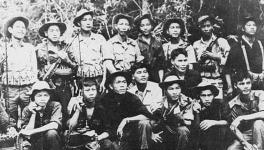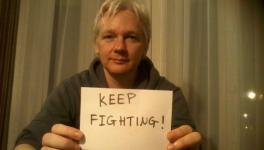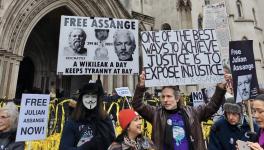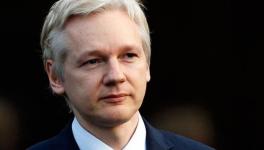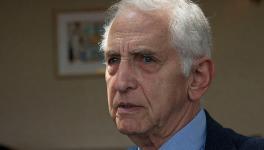Assange will not Get a Fair Trial in US, Says Pentagon Papers Publisher in Testimony
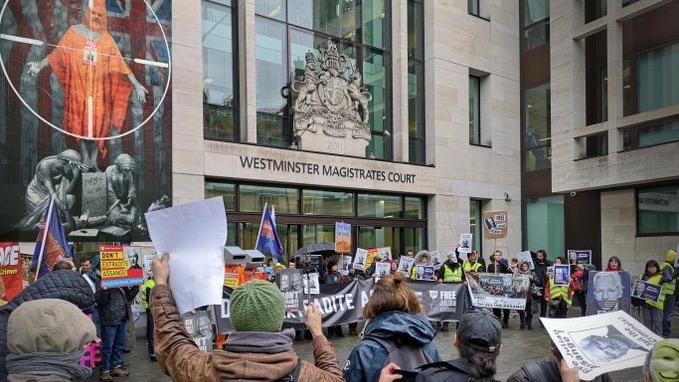
Rally outside Old Bailey in London in support of Assange.
On the six and seventh days of the trial portion of the Julian Assange extradition hearing, the defense presented a marathon round of testimonies from expert witnesses. Among the witnesses to testify in favor of Assange’s case was Daniel Ellsberg, famous for releasing the Pentagon Papers in 1971.
Ellsberg’s statement echoed the testimony given by Thomas Durkin yesterday on September 15, who also showed skepticism at Assange’s chance of receiving any fair trial in the US. Durkin pointed out yesterday that not only is his case highly politicized, but also demonstrated that the existing sentencing guidelines in the US incentivizes defendants to settle for a plea deal early in the case thus sealing their conviction.
In a searing testimony to the court, Ellsberg stated “Julian Assange could not get a remotely fair trial under those charges in the United States.” He shared that even he “did not get a fair trial despite a very intelligent and conscientious judge.” He added that no person charged under Espionage Act ever since has had a fair trial.
The Pentagon Papers that Ellsberg leaked, revealed otherwise unreported crimes committed by the US in the Vietnam War. The documents, which were compiled as part of a government report assessing the war situation, also revealed that successive governments deliberately misled the public about the nature and the scope of the war.
Ellsberg, along with his colleague Anthony Russo, were charged under multiple sections of the Espionage Act by the Richard Nixon administration, which carried a total maximum sentence of 115 years. The prosecution was eventually dropped after it was revealed that the prosecution and government had engaged in criminal misconduct during the investigation.
During the cross-examination, Ellsberg dismissed the narrative that separated his work in Pentagon Papers and Assange’s work (along with that of Chelsea Manning and Edward Snowden). This has been a narrative that the prosecution seemingly has wanted to use. He stated that “they make a distinction which in my view is entirely misleading.”
Throughout his testimony, Ellsberg compared his work with the Pentagon Papers with the Wikileaks revelations, and how similar ethics and discretion was used by Assange while publishing those documents.
Ellsberg pointed out that Assange had approached the US government to assist him in protecting names, but the latter chose not to do so. He also criticized the prosecution’s argument that Assange caused any harm with publication of the names, considering that none of the persons named in the leaked documents had suffered death, violent harm or incarceration.
The seventh day of proceedings in the trial portion of WikiLeaks founder Julian Assange's extradition hearing will begin shortly. I'll have live updates at this thread. #AssangeTrial
— Kevin Gosztola (@kgosztola) September 16, 2020
Other witnesses who testified in the court include John Goetz, a journalist who worked on the crucial publications in 2010-2011. Goetz’s testimony addressed the widely prevalent notion that Assange did not work to minimize harm through the publication of the documents. He pointed out that over 14,000 documents related to the Afghan War Logs were decided to be left unpublished as part of an extensive “harm minimization process”.
Goetz also stated that there was extensive redaction of names and other personal details of various individuals in the documents, which was often much more than what the US Department of Defense did when releasing the same documents under Right to Information requests.
Goetz testified on record that during the period when the Afghan War Logs, Iraq War Logs and US embassy cables were published there was a “very rigorous redaction process, and as far as i know, no names came out of that period.” He also pointed out that the falling out between Wikileaks and The Guardian happened after the latter’s journalist, David Leigh, published the decryption password to unredacted documents for US State Department cables in his book.
Journalist John Goetz, who was present at the dinner in which @davidleighx writes in his book the alleged #Assange comment "informants deserve to die", made a sworn statement to court saying that #JulianAssange did not make that statement that evening.#AssangeCase pic.twitter.com/2qjYXnRRIO
— Juan Passarelli (@jlpassarelli) September 16, 2020
On September 15, the prosecution also continued with the cross-examination of the testimony of Eric Lewis. Lewis told the court that the US Department of Justice which is pursuing the Wikileaks prosecution in the US, is not an independent government body, but an extension of the Trump administration. He cited past Justice secretary’s statements to show that federal prosecutors indicting Assange are working in a top-down approach to the case, and take orders from the government itself.
Lewis also stated how even in the best case scenario, Assange is still looking forward to spending the rest of his life in prison if extradited to the US. According to Lewis, Assange is facing more charges than the actual person who leaked the documents, Chelsea Manning who only faced 10 charges where prosecutors had demanded 60 years in prison.
Julian Assange’s extradition hearing began on September 7 at the Old Bailey Court in London and is expected to continue for the next couple of weeks. The US government is seeking the extradition of Assange from the United Kingdom in order to prosecute Assange under the Espionage Act. He faces a minimum of 175 years in person.
For Peoples Dispatch’s full coverage on Julian Assange and the ongoing extradition trial click here.
Courtesy: Peoples Dispatch
Get the latest reports & analysis with people's perspective on Protests, movements & deep analytical videos, discussions of the current affairs in your Telegram app. Subscribe to NewsClick's Telegram channel & get Real-Time updates on stories, as they get published on our website.













